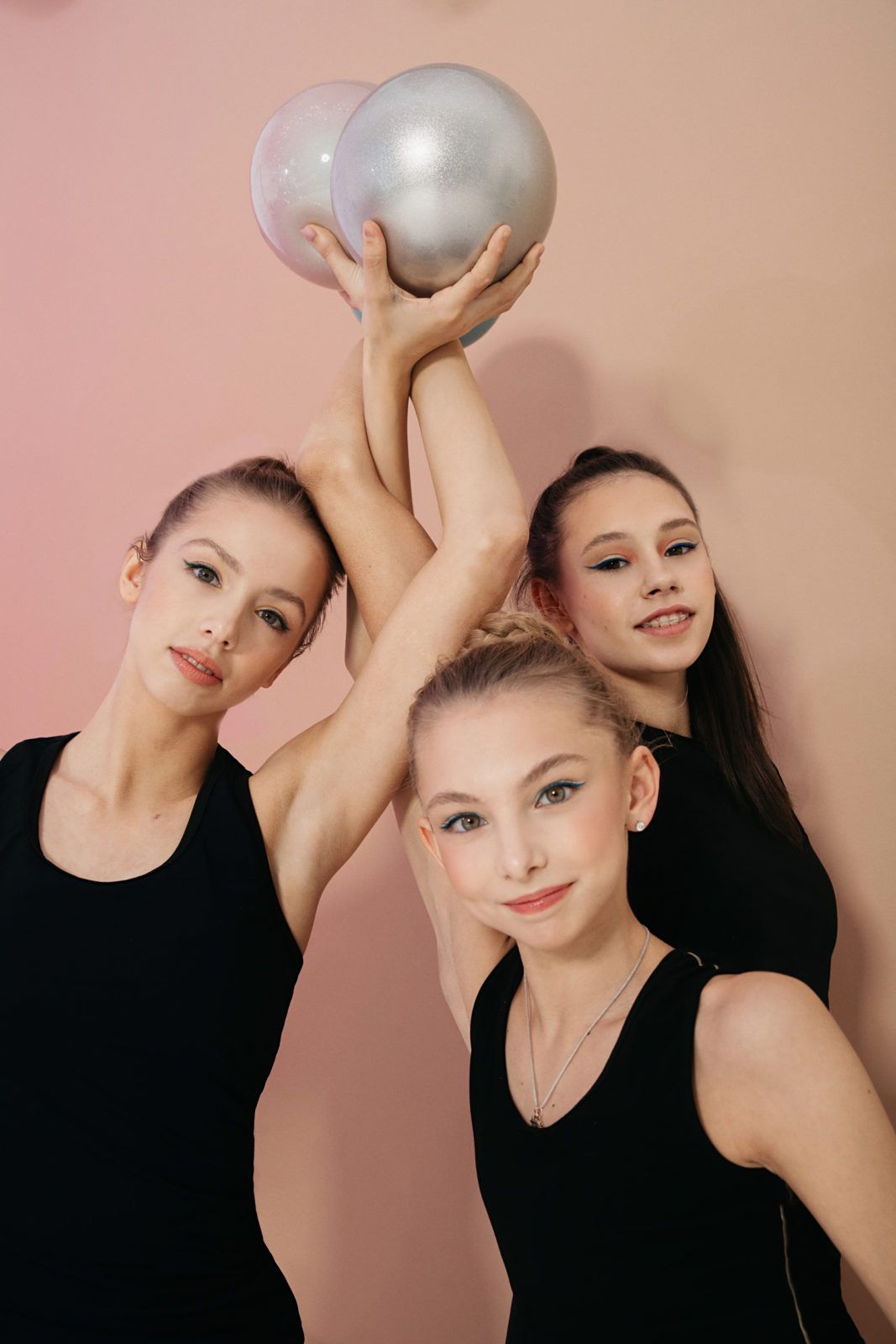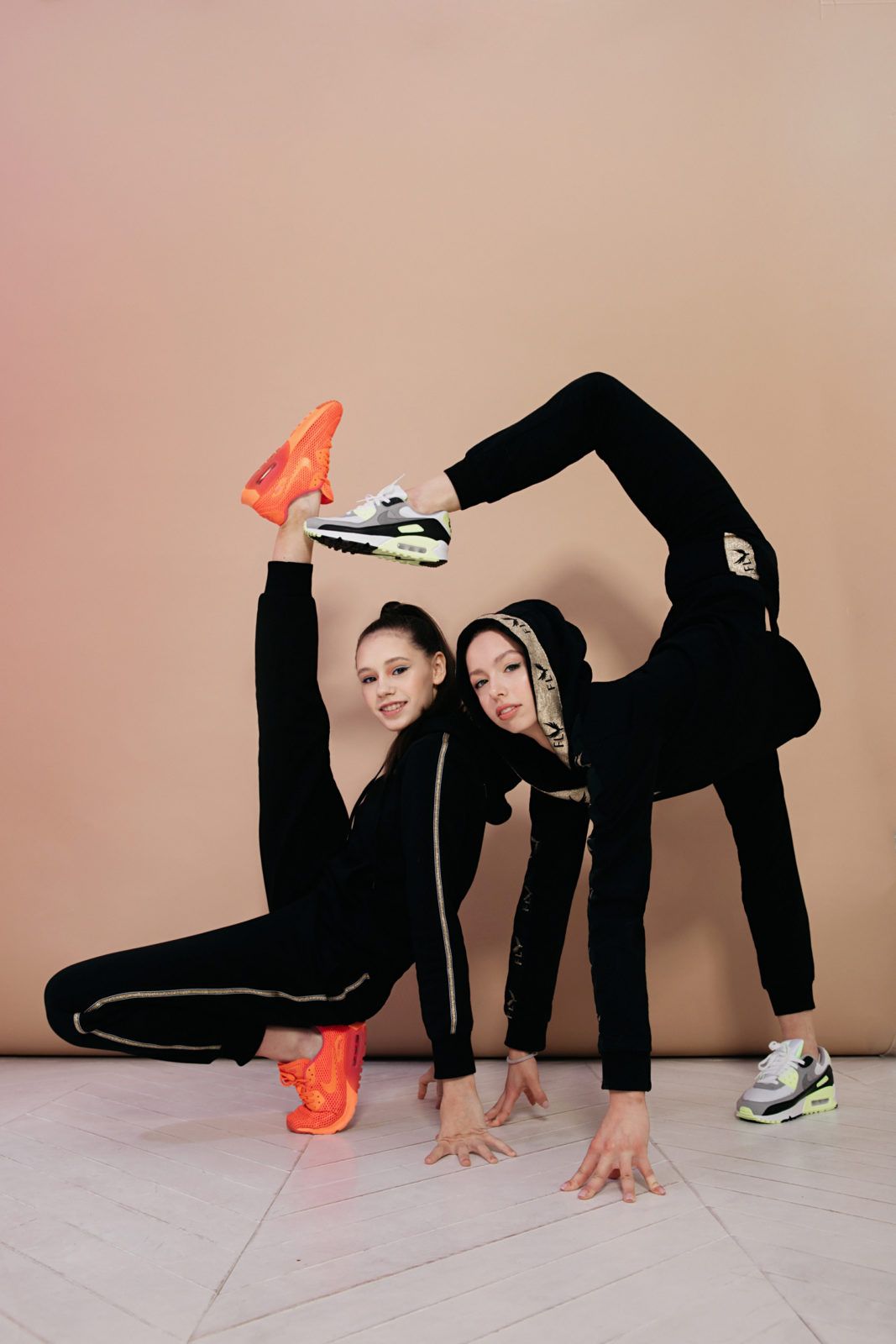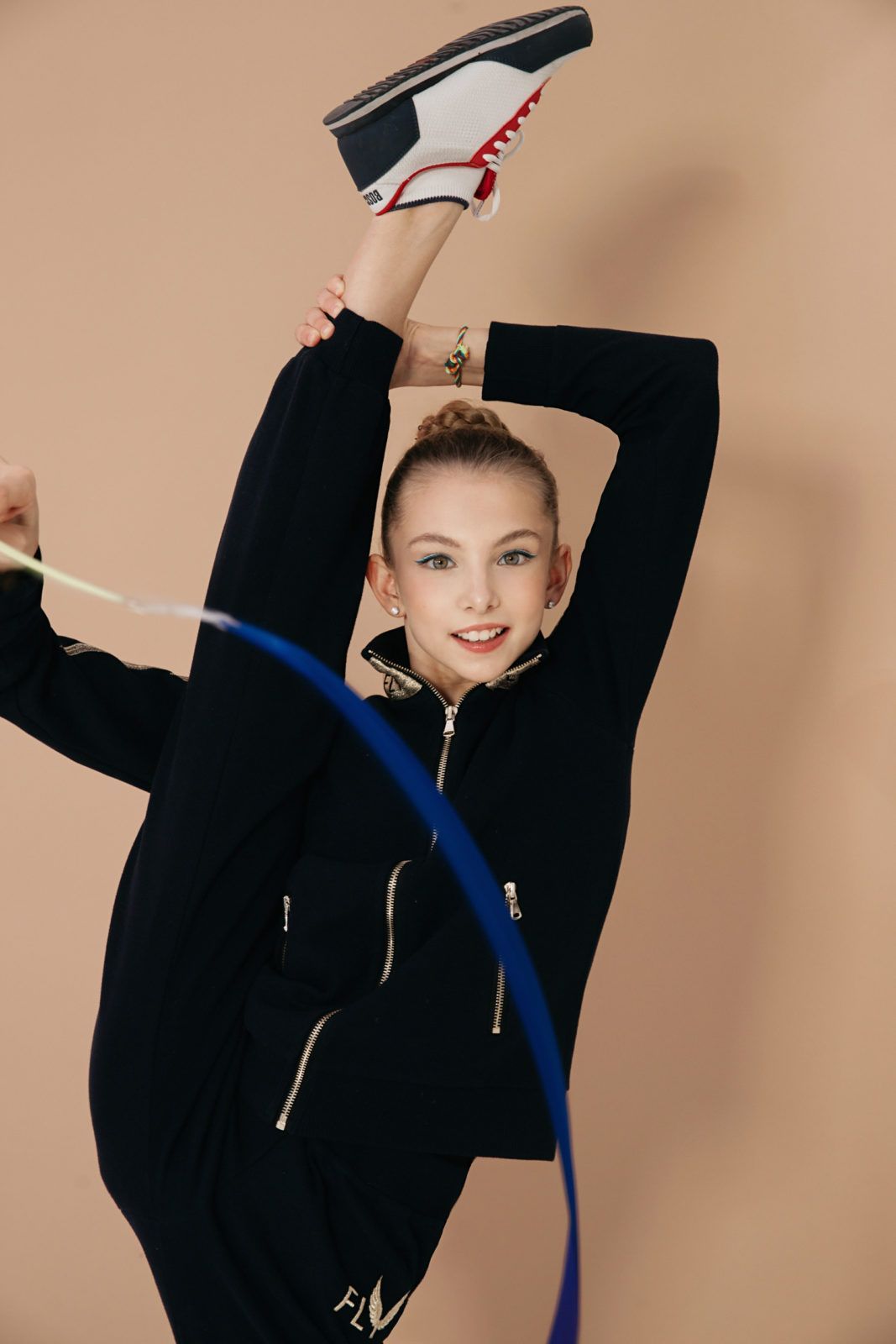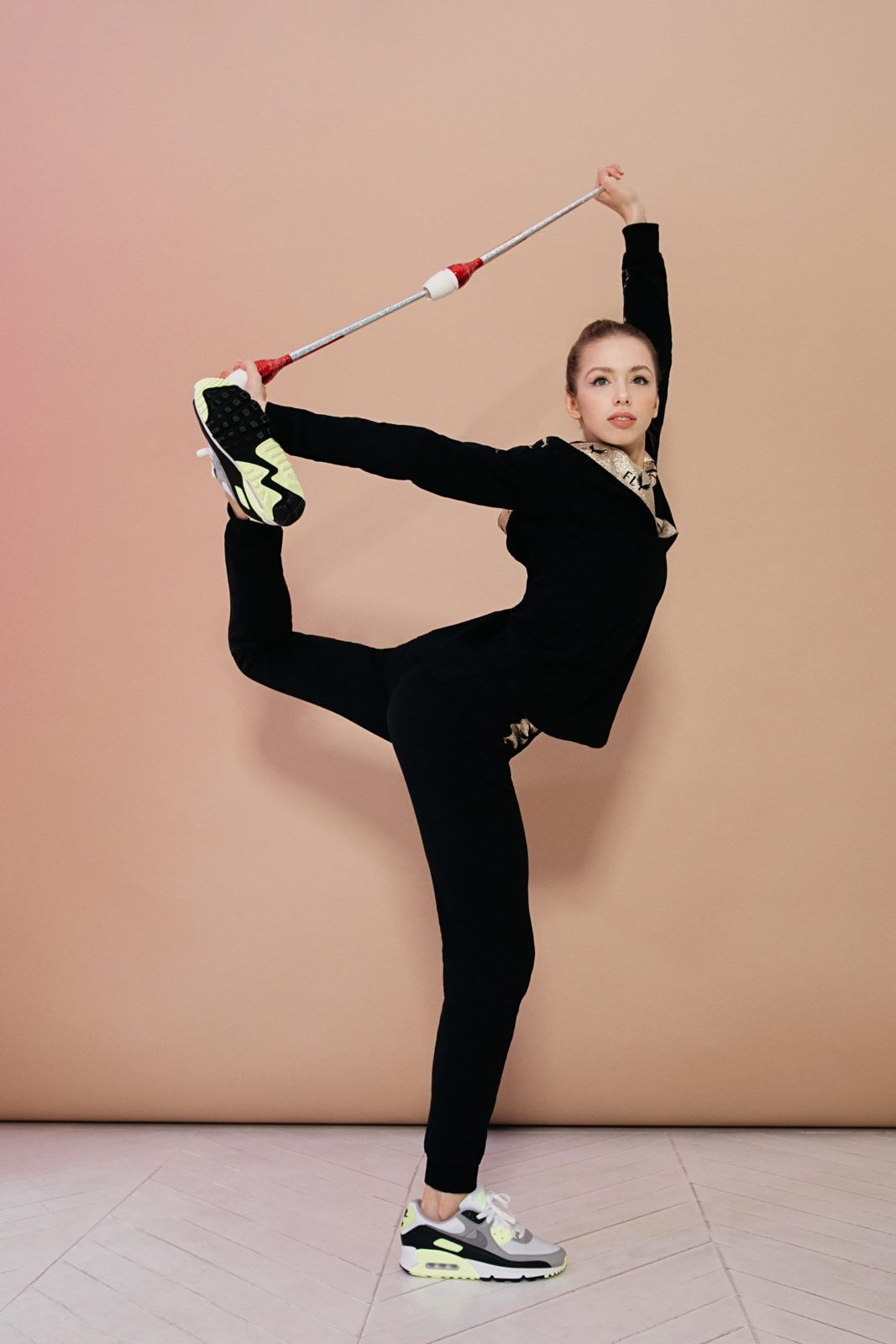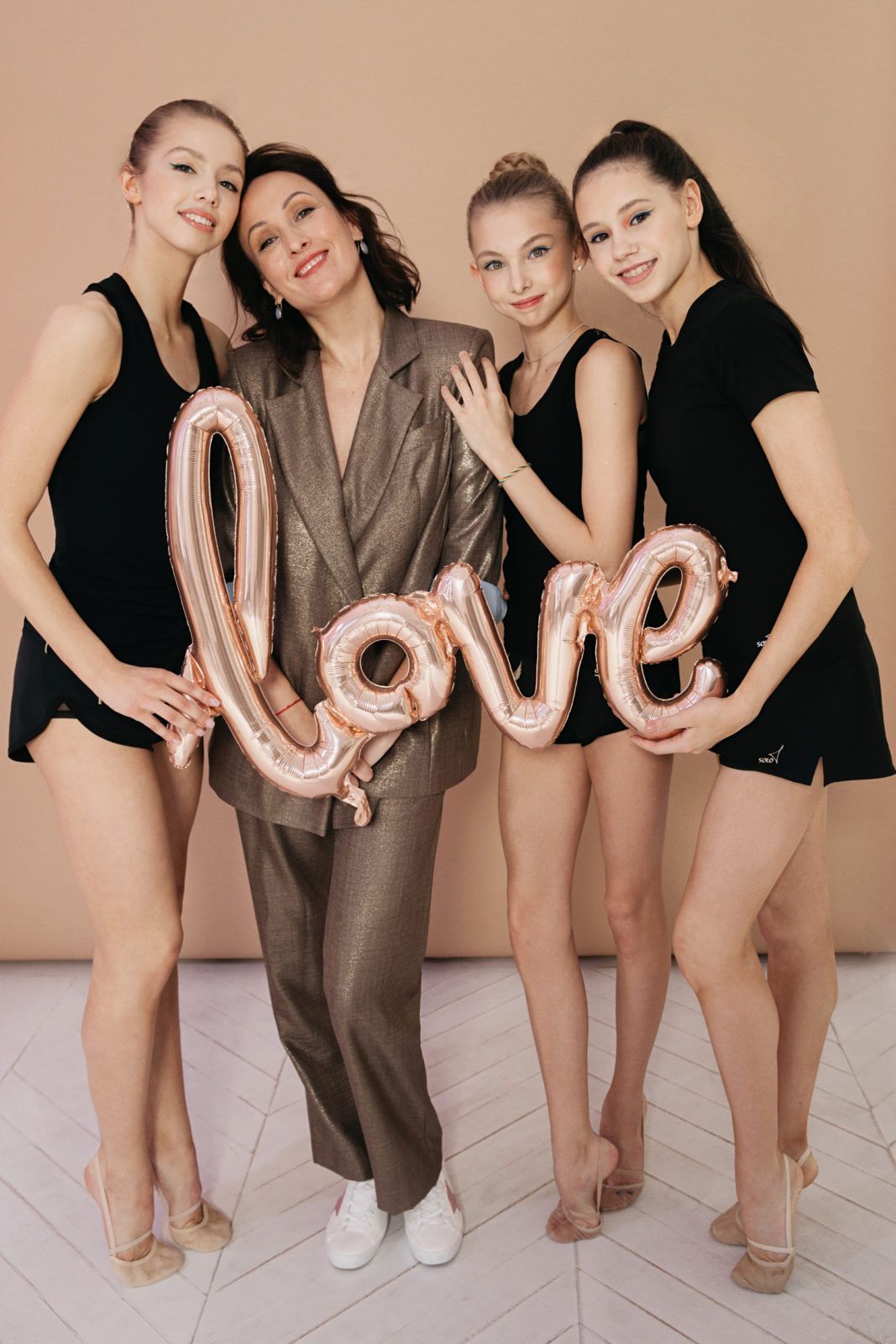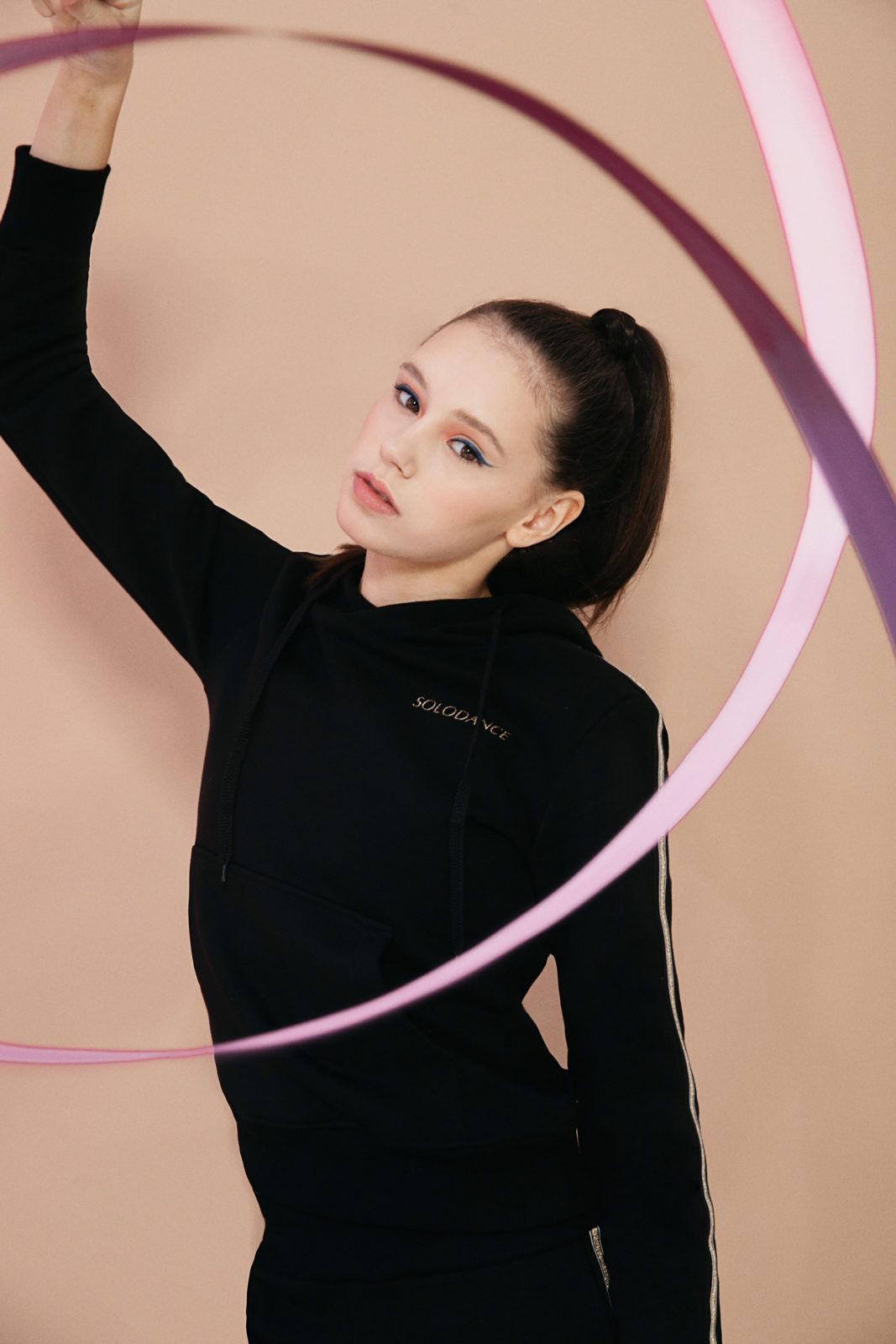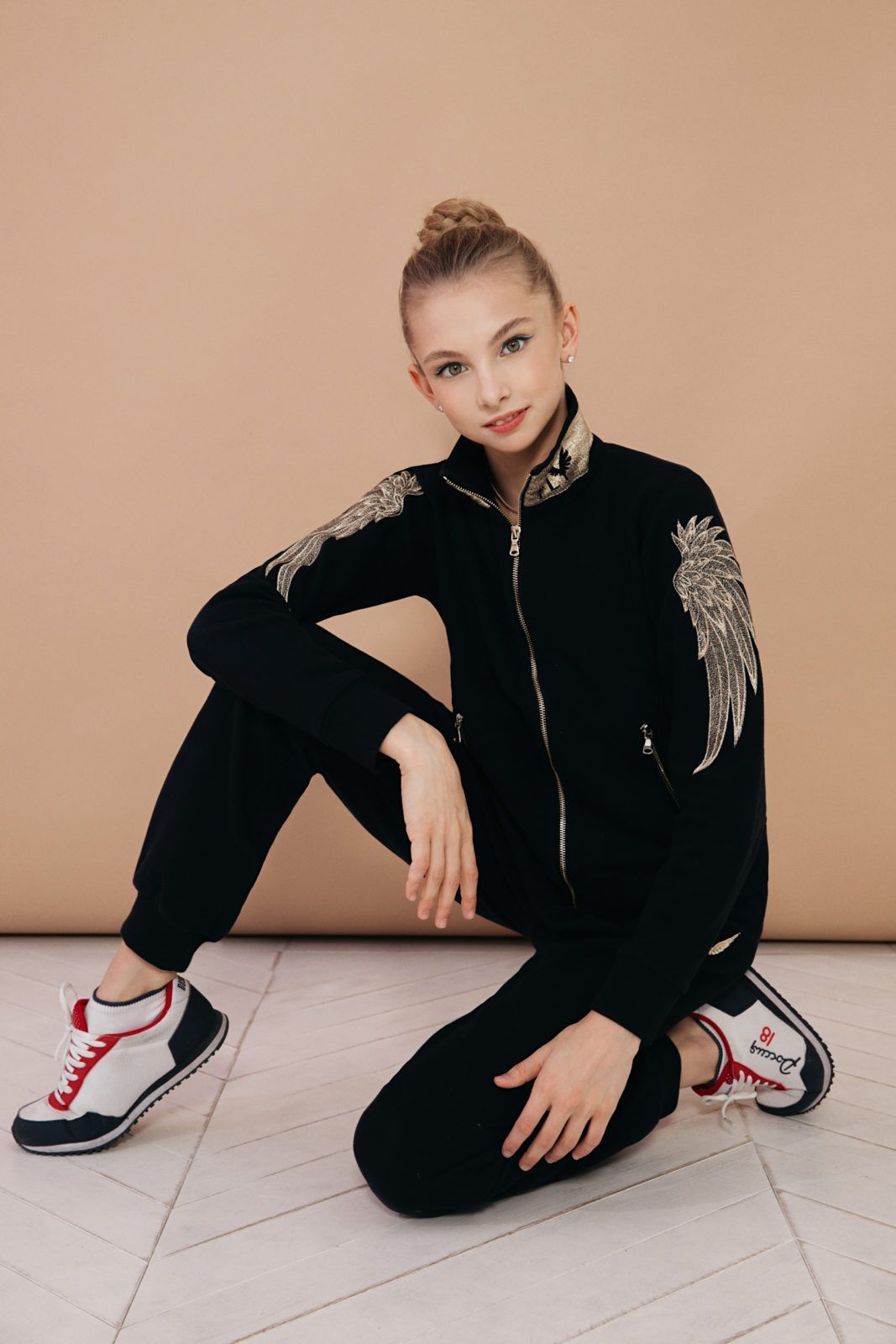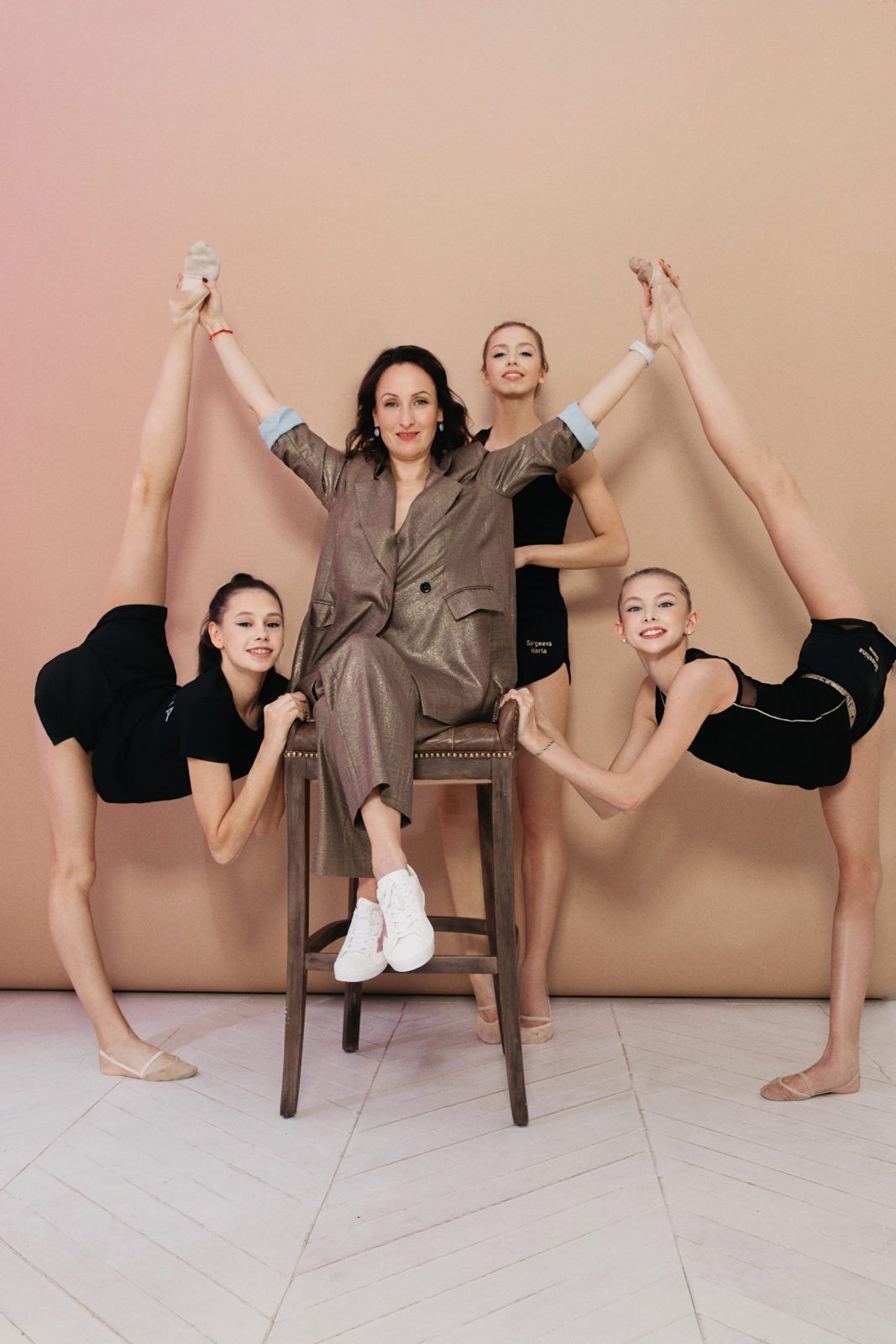Maria Sergeyeva, Diana Simoshina and Daria Trubnikova are the pupils of Amina Zaripova the famous coach for Russian National Rhythmic gymnastics team. In the interview to La Personne Amina Zaripova told that she grows up together with her gymnasts. And we decided to talk to her girls about their work with a coach, new routines and complicated moments in the sports career.
Interview & Producer: Angelina Krivova
Photographer: Daria Ratushina
MUAH: Daria Selivanova & Anastasia Kuznetsova
What is rhythmic gymnastics today?
Dasha: Gymnastics has changed a lot, and we have a lot of turns head first, and many spectators notice this. We also want to show plasticity and beauty.
Masha: What we see today is completely different from what it was 4 years ago.
Diana: Because before there was an emphasis on the elements, but now we are almost always upside down.
Dasha: It turns out that today gymnasts perform and get pretty good grades, even those who cannot express emotions like our Arina and Dina Averina, for example. Arina and Dina are able to express emotions and at the same time make very complex elements and work with the apparatus. Not everyone can handle this!
Since you are still active athletes – please tell us about the beginning of your career in rhythmic gymnastics, and how you have got to Amina Vasilovna Zaripova.
Dasha: I started doing rhythmic gymnastics when I was six and a half years old, in my kindergarten there was a poster with information about inviting children to join a group, my mother and I decided to try. I became interested and stayed. At 9, I moved to Obninsk and trained there for 3.5 years with Sazonova (Saprykina), and then I was invited to Moscow, where I trained with Ekaterina Pankova in the Kryliya Sovetov for 2.5 years. And in the middle of 2017, I fell into the hands of Amina Vasilovna, Thanks God.
Masha: I did gymnastics with my twin sister Nastya at the age of 5, because we were hyperactive in childhood, our father and we spent almost all the time on the playground, on the horizontal bars. And my mother decided, by the advice of many of her friends, to bring us to the rhythmic gymnastics to the Fakel club, and we trained there for a year. The coach noticed a great prospect in us and advised us to try to go to my St. Petersburg to coach Irina Pomysova. We went to the show, and she took us, and even with curiosity, because she never trained the twins and wanted to understand what it was. And I still train with her, when I am in St. Petersburg. In 2013, I went to the tournament to Amina Zaripova, where she and Tatyana Gorbunova noticed me there. Amina Vasilovna learned from me everything that she needed and immediately invited to a training camp in Novogorsk.
Diana: I began to train at 4.5, after my older sister. I liked it and we decided to try it. I was taken to a sports group, and then transferred to the OTS (Olympic Training Center in Moscow) to Tatyana Gorbunova and Natalya Liberman. Then I went to a training camp to Amina Vasilovna, and she invited me to her.
What is the most difficult moment in a sports career?
Masha: Probably when a serious injury happens and recovery takes place, and you don’t understand…
Dasha: …if you are able to continue
Masha: if you stay at the same level or you slide down. It’s very hard morally, because physics can take its hand.
Dasha: And morally, not everyone can handle it.
Masha: It’s difficult when unsuccessful starts go in a row, your hands drop. The main thing is to have an understanding coach, but Amina Vasilovna is very understanding with us. Naturally, she swears at us, we are offended by each other, but in the end we always put up and then we all go together towards the goal that we set. It is very important that there is support in difficult moments.
Dasha: We are behind Amina Vasilovna, like behind a stone wall.
The phrase of Amina Zaripova, which you often recall.
Masha: Life does not end. In fact, every time we hear something new.
Dasha: When well done, then well done!
And Irina Alexandrovna Viner?
Dasha: “I won’t say good for bad, bad for good”, “Made a ribbon means a champion!”
Masha: Irina Aleksandrovna very often talks with gymnasts and gives wise advices, so this is not a single phrase.
Who is your favourite gymnast?
All together: Rita Mamun.
Dasha: And for me also Julia Bravikova.
What is your strength?
Masha: I believe that I am calm and calmness helps a lot. Of course, I can start to wind up myself, which is not good, but then I recall that the situation is not worth it for me to worry so much. And then I calm down and make an adequate decision.
Dasha: Recently, I also began to cheat myself, to aggravate what is happening. And then I remember the words of Amina Vasilovna: “Your life does not end at this moment.” Then slowly you begin to go forward.
Diana: I just really like gymnastics and I love what I do day after day. It helps me to go to my goal.
Masha: It may sound strange and self-confident, but I’m probably still a positive person and moderately do not care.
But in sports, it’s really nowhere without it.
Dasha: It seems to me that lately I take everything too closely and seriously. I try, of course, not to do this.
Masha: I, in my opinion, worry about others more than myself.
Please, tell us about your routines in the new season.
Masha: This year I have only 2 new programs – with a hoop and clubs. I really like both programs: the hoop is wide, soft and powerful at the same time. And the clubs, probably now my favourite routine, because of the song “Faradenza” of my favourite group “Little Big”! I could not even think that Amina Vasilovna would suggest that I make a routine for this music. We were at a training camp in Croatia in the summer and, as usual, listened to new music for routines.
Dasha: I have 3 new programs this season: a hoop for Giuseppe Verdi, we have already taken adult, serious music, as far as I know, Evgenia Kanaeva made to it. We are still determined with clubs, because we are looking for the perfect match of exercise, music and me. The tape is light, airy to the music of Schnittke from the movie “Flight”.
Diana: I also have 3 new species this season. The ball to the music of Secret Garden “Appassionatta” is a very gentle, airy exercise. Under the clubs, I have a Russian folk song “Oh you canopy, my canopy”, this is a fun, provocative exercise where I can play with spectators and judges. And for the tape we took Jewish music, which is unusual for me, because I never did anything to this music. But we decided to try it and so far I really like it. Let’s see what happens next.
Making routines or practicing?
All together: Both.
Dasha: It’s probably easier to compose.
Masha: At the same time, the development process is pleasing. When the first days you work at a new program, and you do not succeed, and then you notice that you have made such great progress. And usually this happens quickly, but you do not always see it yourself.
Gymnast does not have the right to
Dasha: To take extra drugs, otherwise there will be doping. And the gymnast must observe the regime!
Masha: The gymnast does not have the right to challenge the decision of the coach, because he is partly your boss and tells you what to do. The gymnast can consult or find out an opinion, but never argue, otherwise it will only get worse. Well-coordinated work of the entire team is needed for progress.
Loss of apparatus
All together: Failure.
Diana: Because losses cost a lot right now.
Dasha: Now, by and large, wins a gymnast, who will not make losses, while the gymnast can be of an average level. Now you can’t lose.
I am pleased when
All together: Everything turns out, and the coach is satisfied!
I would like to learn and find out
Dasha: To learn English and I learn it now, and to learn rules of RG better.
Masha: I study at the university, and there we are just learning all the rules thoroughly. I would also like to learn foreign languages, and after completing my sports career I would travel, learn the cultural characteristics of different countries in order to feel the atmosphere of each country. I also really love music and cannot live without it, and I would like to connect it with my future profession. While I’m trying to find myself in something other than rhythmic gymnastics, which I really like.
Diana: I would also like to learn English, which is always useful. I would like to try myself as a coach to look at everything from a different perspective.
Dasha: By the way, I see myself exclusively as a coach in the future.
Fans always are
All together: The best!
Features you don’t like in other people
All together: Cunning, lies, betrayal, excessive pride.
The question I ask everyone – is rhythmic gymnastics a sport or an art?
All together: For us, at this stage, rhythmic gymnastics is, first of all, a sport. But also rhythmic gymnastics is one of the few sports that can be called art, because we transmit the image through music and movements. Irina Alexandrovna often tells us to “show the performance” on the carpet.




